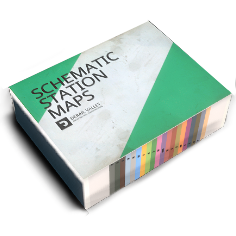Translations:Wheelslip/1/en: Difference between revisions
Appearance
Importing a new version from external source |
Importing a new version from external source |
||
| Line 1: | Line 1: | ||
Poor {{pll|Traction Overview|traction}} can make wheels of {{pll|Rail Vehicle Types|motorized rail vehicles}} | Poor {{pll|Traction Overview|traction}} can make wheels of {{pll|Rail Vehicle Types|motorized rail vehicles}} slip, if too much {{pll|Throttle|torque}} is delivered. Even minor wheelslip greatly hinders acceleration, which can make the train unable to climb a {{pll|Grade Signs|grade}}, and cause major {{pll|Wheels & Brakes Damage|damage to the wheels}}. | ||
Latest revision as of 21:44, 17 March 2025
Poor traction can make wheels of motorized rail vehicles slip, if too much torque is delivered. Even minor wheelslip greatly hinders acceleration, which can make the train unable to climb a grade, and cause major damage to the wheels.
